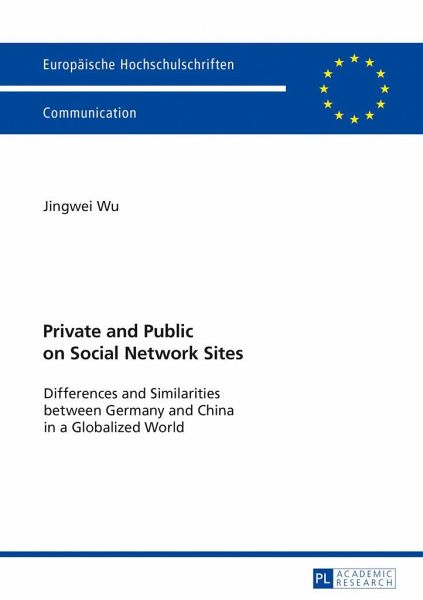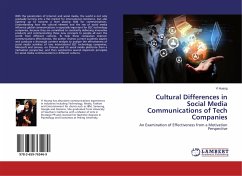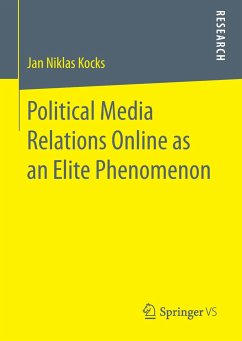
Private and Public on Social Network Sites
Differences and Similarities between Germany and China in a Globalized World
Versandkostenfrei!
Versandfertig in 6-10 Tagen
67,75 €
inkl. MwSt.

PAYBACK Punkte
0 °P sammeln!
This book explores the boundary between «the private» and «the public» on Social Network Sites based on the sociability framework. The author analyses the roles of social norms and influences, benefits, and risks/costs, on the behaviors of SNSs users through models based on Social Exchange Theory, Social Penetration Theory and Communication Privacy Management Theory. She reviews different notions of «the private» and «the public» and selects the sociability framework to investigate the distinction between private and public. The author uses this theoretical framework to conduct online ...
This book explores the boundary between «the private» and «the public» on Social Network Sites based on the sociability framework. The author analyses the roles of social norms and influences, benefits, and risks/costs, on the behaviors of SNSs users through models based on Social Exchange Theory, Social Penetration Theory and Communication Privacy Management Theory. She reviews different notions of «the private» and «the public» and selects the sociability framework to investigate the distinction between private and public. The author uses this theoretical framework to conduct online surveys and interviews with selected SNSs users in Germany and China and concludes that the clear boundary of «the private» and «the public» on SNSs is a result of acts of disclosure and/or withdrawal of personal information and political opinions. Globalization and mediatization contribute to similarities among different countries but do not erase the differences in their respective boundaries.














